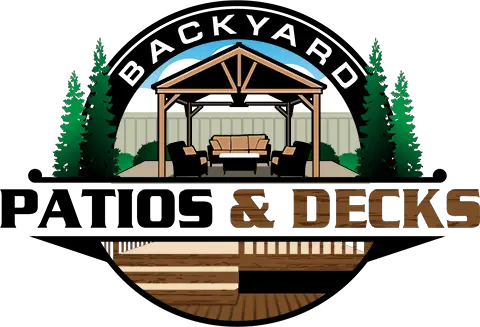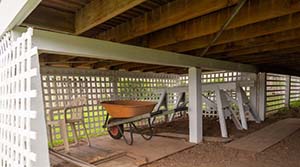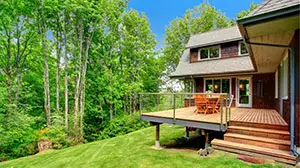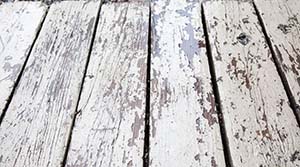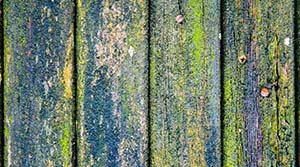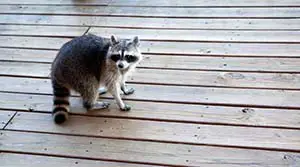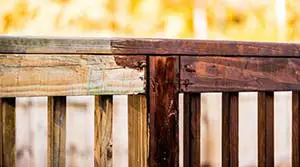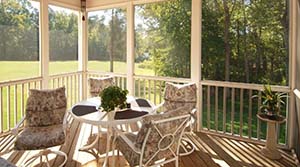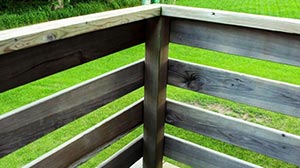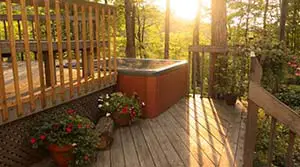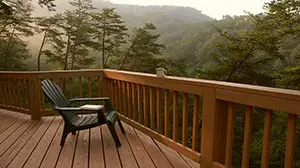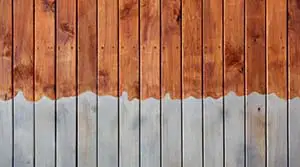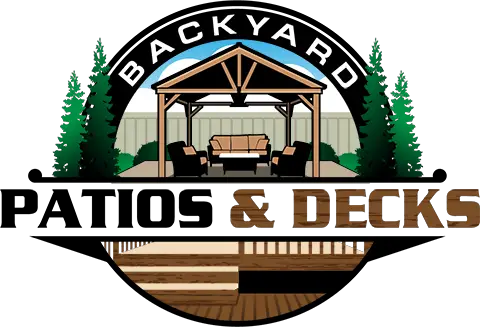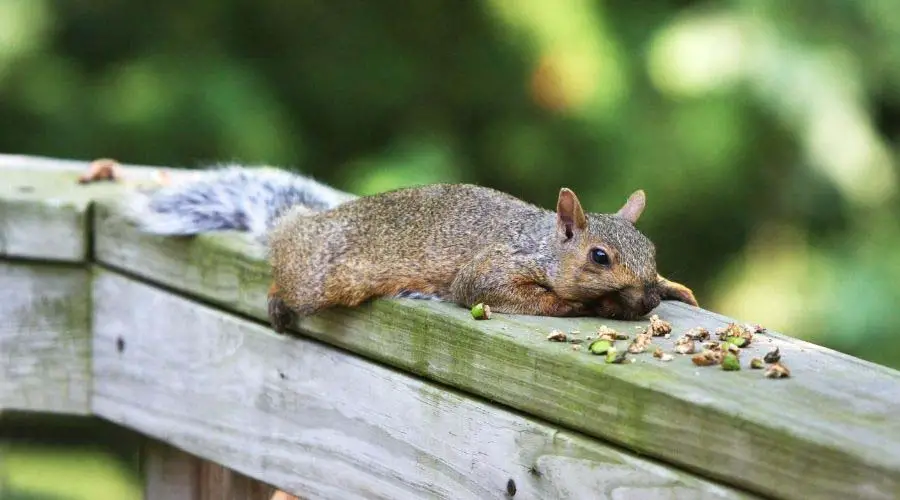
Are you having trouble with squirrels invading your porch or deck? Well, it is in your best interest to get rid of these pesky animals.
Below are some things you can do to take back control of your property from squirrels.
- Identify the squirrel hiding spots and destroy their nests
- Close up any squirrel entry points
- Clean up your property
- Cut and prune your vegetation
- Get rid of the food and water sources
- Lure them away
- Employ Electronic Systems
- Keep pets that scare squirrels
- Use natural and chemical squirrel repellants
- Call in a pest professional
As tempting as it is to turn squirrels into pets, you shouldn’t do that. They can carry many diseases and can be destructive. Learning what attracts them to your yard will enable you to get rid of them quickly.
This article will help you do that by discussing the dangers that these animals can expose you to, what attracts them, and how to keep them away from your home.
Why Should You Keep Squirrels Away from Your Property?
Do not let the cuteness of squirrels fool you. The animals can pose considerable danger to your health and that of your pets. If they end up making a home on your porch or deck, you may end up paying for that decision quite heavily.
Below are some of the dangers that squirrels carry or pose.
1. Plague
The plague killed millions of people in the past. Rodents, such as squirrels, carry the fleas that bite people and mammals and transmit this disease. You can also contract the condition if you handle the fluids of an infected animal.
Depending on the kind of plague that one gets, symptoms include fever, weakness, pneumonia, shock, and skin tissue blackening. While there is an effective treatment for the disease, you have to get it quickly or risk dying.
2. Lyme Disease
Lyme disease is a bacterial disease that spreads through tick bites. And animals like squirrels tend to be infested by ticks.
Lyme disease symptoms include fever, skin rashes, fatigue, nerve pain, and joint stiffness. If left untreated, the infection can spread and cause several health complications, such as arthritis.
3. Salmonellosis
If you have squirrels on your porch or deck all the time, then you also need to worry about Salmonellosis. The bacterial disease passes through animal urine and feces of different animals, including squirrels.
Symptoms of the disease include stomach cramps, diarrhea, and vomiting. You may also experience headaches, blood in stool, fever, and dehydration. If the infection is severe, you may end up being hospitalized or dying.
4. Typhus Fever
Flying squirrels are responsible for many of the known typhus fever cases in the U.S.
You can get the disease if you contact these animals or their nests. Its symptoms include fever, nausea, vomiting, and joint pain. For those who experience severe symptoms, hospitalization or death is inevitable.
5. Leptospirosis
Leptospirosis is a bacterial infection that spreads through the urine of infected animals like squirrels. Unfortunately, the bacteria can also survive for long periods in water or soil where infected animals have been. If you contact these things, you too can become infected.
When you get infected with leptospirosis, your symptoms include headaches, fever, jaundice, and mental confusion. If you do not address these symptoms quickly, you may end up with kidney, liver, brain, and spinal cord damage.
It is also worth noting that leptospirosis can also affect your pet with similar results.
6. Rocky Mountain Spotted Fever (RMSF)
Rocky Mountain spotted fever is a disease that spreads through ticks from dogs and small mammals like squirrels. So, you and your pets can get it from any squirrels that show up in your yard.
Symptoms of RMSF include skin rashes, body pain, and fever. In addition, it could affect your kidneys, lungs, or brain and, in severe cases, may necessitate hospitalization.
7. Property Destruction
Squirrels do not just carry numerous diseases. They are also pretty destructive, which is why they make horrible pets.
The furry villains will chew anything in sight, including your furniture and birdhouse components. In addition, these pesky animals will spread their urine and feces in as many places as they can get them, thus leaving your property smelling terrible.
The destructive habits that squirrels exhibit will not just be limited to your porch or deck. If you have a garden, they will destroy it too. So, expect to see them nibbling on your beautiful flowers and creating unsightly holes in your lawn or garden.
Also, know that they can endanger your life and the life of your loved ones by chewing through protective features, such as deck railings. In addition, they will gnaw their way into your home and make a nest while destroying wiring in the process.
They may also compromise the integrity of the main structures. Furthermore, they could chew through your vehicle components like wiring and render your car unusable.
What Attracts Squirrels?
Knowing the dangers, you face from squirrels and their destructive habits would help if you knew what keeps attracting them to your home in the first place.
Below are some of the things in your property responsible for bringing squirrels right to your doorstep.
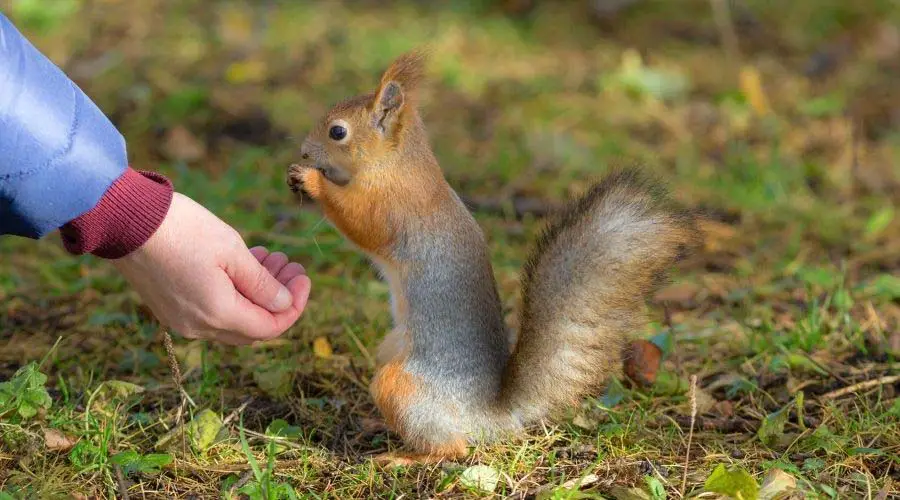
1. The Food You Give Them
The number one reason squirrels are showing up on your deck or porch is what you are feeding them.
These furry creatures not only eat nuts, fungi, plants, and flowers but insects too. In addition, they will eat birdseed, the scraps you throw away, and even eggs from your chicken coops if they can get them.
So, if you have developed the habit of leaving behind some food for them, it’s no wonder that they are happy to call your property their home too.
You may also want to check around to see if there are water containers anywhere. Squirrels may still show up even without food if you provide them with drinking water.

2. Vegetation Near Your Property
Squirrels like properties with plenty of vegetation, such as shrubs, bushes, and trees, and use them as food sources and places to hide when they feel threatened.
They seek alternatives in the absence of these things, such as wood stacks and ornamental grass. Generally, if you have lots of vegetation, expect squirrels to show up and make themselves at home.
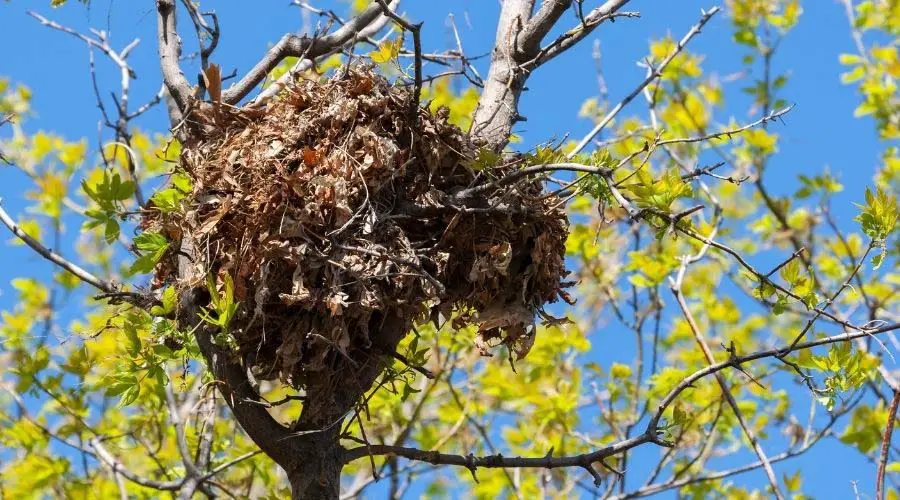
3. The Nesting Areas You Offer
Like humans, squirrels also need a permanent base to create a nest. These squirrel nests usually consist of clumps of materials, such as moss, leaves, twigs, and tree barks compressed together. But they can also be made of garbage, wood, or paper.
They can create these nests anywhere they find warmth. If they do not see a natural perch in a tree, they can chew their way into one.
So, it would help if you investigated your attic, wall sections in which you hear strange noises, underneath your porch or deck, up to your chimney, in your basement, within your vehicle, in tree holes, and even in your birdhouses and chicken coops. Alternatively, you could find these squirrel nests in the ground.
How Do I Keep Squirrels Off my Porch?
It is one thing to acknowledge the dangers squirrels pose and learn what attracts them, but it is another to get rid of them.
That is because you must safeguard your property from further damage. In addition, you need to ensure the squirrels do not bite or injure you so you can avoid infections.
You can use the strategies discussed below to keep squirrels away from your porches and decks.
1. Identify the Squirrel Hiding Spots & Destroy Their Nests
When dealing with squirrels, your first order of business is to identify their hiding spots and then destroy their nests.
You can locate these spots by listening for unexplained noises in walls, the chimney, the basement or air conditioning system vents, underneath the foundation, etc.
You can also watch out for damage to your stuff, such as furniture, plants, and lawn. If you discover that some of your poultry eggs are missing, watch out for squirrels.
Other signs that could point out the way to squirrel hiding spots include a foul smell, droppings, water damage signs, and squirrel footprints.
Because of the dangers that some squirrels and their nests pose, you should wear protective clothing when removing them. That includes heavy-duty gloves and a long-sleeved coverall. It may also be a good idea to wear a mask.
When physically removing squirrels, you could try to wrap them up in a blanket or leave an exit point through which they can rush out.
But you can also opt for a squirrel trap. In addition, you can use lights and use loud noises to try and scare away the squirrels.
2. Close Up Any Squirrel Entry Points
Once you remove the squirrels from your property, you need to close any squirrel entry points. These points welcome them into your home and put them near your porch or deck where they can hang out when you are not around. However, the closure method depends on the entryway.
For example, if squirrels entered your chimney from the top, you could install a chimney cap after getting rid of them. Doing so would still allow heat and smoke out while keeping animals away.
On the other hand, if you have issues with squirrels in your garden or chicken coop, you could fence them off. In such a case, it will help if you buy sturdy netting and bury it deep into the ground to prevent squirrels from burrowing into your garden.
In addition, you can cover your plants with chew-proof netting to keep the furry creatures away from their food source.
As for birdhouses, squirrels can chew the hole to make it big enough to access the food or warm shelter inside. So, you should ensure the birdhouse entry hole is only big enough to allow the birds you desire inside.
If the hole is much bigger, you should install a metal ring around the entry point. You could also install a baffle on the birdhouse poles or oil them to prevent the squirrels from climbing up them.
3. Clean Up Your Property
If you have plenty of waste and debris around your property, it could be the reason why squirrels are always on your deck.
The waste you leave behind attracts some insects, which are natural food for squirrels. But it may also provide a direct food source for the squirrels.
So, take time to clean your porch and deck regularly. Keep the rest of your yard as tidy as possible. The cleaner the area is, the less likely squirrels are to find food in it, thus keeping them away from your outdoor space.
4. Cut & Prune Your Vegetation
Your vegetation provides some squirrels with the perfect place to build a nest. In addition, it enables them to access your home and birdhouses and feeders easily.
Also, the vegetation may allow some types of squirrels to move from one point to another, thus providing a quick escape.
To keep squirrels off porches and decks, you must reduce the amount of vegetation around your home. You could do that by cutting trees and bushes near your home and replanting them farther away or apart.
The general rule of thumb is to keep tree squirrels at least 10 feet away from any building on your property.
However, if that is not something you want to entertain, you must make life harder on the furry animals. You can do that by:
- Trimming the lower branches so that there is nothing for at least five feet above the ground.
- Installing physical barriers like baffles on the trees to prevent squirrels from climbing.
- Spacing vegetation so that each plant squirrels can use for climbing is ten feet away from the others near it.
5. Get Rid of All Food & Water Sources
If squirrels cannot feed on your property, they are unlikely to make themselves comfortable on your porch and deck.
So, you can start by getting rid of any pet food that remains after your animals have eaten. Please put it back inside or dispose of it properly to ensure squirrels do not come to your porch or deck to enjoy it.
Bird Feeder Solution
Second, if you have bird feeders, you have to keep the food on it out of reach of the squirrels. You could do that by raising the poles on which they stand and installing baffles or oiling them. But you can also find a way to make the bird feeder float somewhere the squirrels cannot reach.
So mixing up bird feed with cayenne pepper could do the trick. Also, you can opt for safflower, Nyjer, millet, canola, and canary seed and mix it with the bird feed because squirrels tend to avoid those.
Prune Branches
If you do not want to get rid of trees in your yard that provide nuts and other kinds of squirrel-friendly food, you need to prune branches up to a height of at least five feet and install a physical barrier to reduce access.
Get Some Netting
You can also surround any flowers and foods in your garden that attract the furry villains with netting. As for vulnerable tree barks, cover them after spraying them with repellant and then hope for the best.
Manage Compost & Trash
Another way to keep food away from squirrels is to improve how you manage your compost and trash. Ensure you use animal-proof trashcans with tight lids that are inaccessible to them. Also, find compost bins with securely attached covers.
Eliminate Water Sources
In addition, get rid of any drinking water sources, so squirrels do not show up by preventing access to sources like birdbaths. But that could not be easy to do if you have features like ponds and fountains.
6. Lure Them Away
If you do not mind squirrels so long as they stay off your porch and deck, you could try luring them away.
You can do that by installing nesting boxes farther away from your home and providing food and water regularly in the designated spaces to keep them as far as possible.
7. Employ Electronic Systems
Another way to try and keep squirrels from your backyard is to use lighting, sound, and water systems to your advantage.
For example, you can use flashing strobe lights or motion-sensitive sprinklers to scare or chase away these pests. Alternatively, you can employ ultrasonic devices whose frequencies irritate squirrels and keep them away.
8. Keep Pets that Scare Squirrels
Being an animal lover will work in your favor if you have a squirrel problem. Both cats and dogs do not like them and tend to chase them away. So, having them as pets will enable you to enjoy spending time on your porch or deck.
You could also place decoys of animals that naturally prey on squirrels to try and scare them off. These include owls, foxes, eagles, and hawks. But ensure you move these decoys around regularly.
9. Use Natural & Chemical Squirrel Repellants
Squirrels have specific smells they hate. If you find ways of getting these smells on your porch or deck, you can keep them away. Some of these repellants are natural, while others are chemical.
For example, you can find products that mimic the smell of urine of natural squirrel predators, such as foxes. When the rodents sense these smells, they become afraid and stay away from the smelly areas.
However, you can also opt for other natural squirrel repellents. They include:
- Pepper
- Apple cider vinegar
- Garlic
- Peppermint
- Daffodils
- Hyacinth
- Mustard
The repellants come in the form of sprays. But you can also plant them in your yard. Remember, some of these plants have such strong smells, it would be unwise to plant them too close to your deck or porch. If you do so, it may become difficult to enjoy the outdoors.
10. Call in a Pest Professional
If you have no idea where squirrels could be hiding or do not want to deal with their removal, you should hire a pest professional. Such service providers can help you trap, kill, or relocate squirrels or remove their dead carcasses if the need arises.
Pest control companies are also familiar with the local laws, some of which may prevent the killing of some types of squirrels wholly or using some methods. That knowledge could save you from getting in legal trouble later on.
Final Thoughts
Squirrels are cute. But they also carry dangerous diseases. In addition, they can be pretty destructive, causing you thousands of dollars of property damage.
However, where possible, you should use humane methods to keep them away and get rid of them. But it pays to hire professional pest removal services to deal with them when you cannot do so.
References
